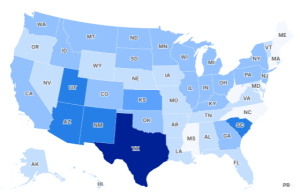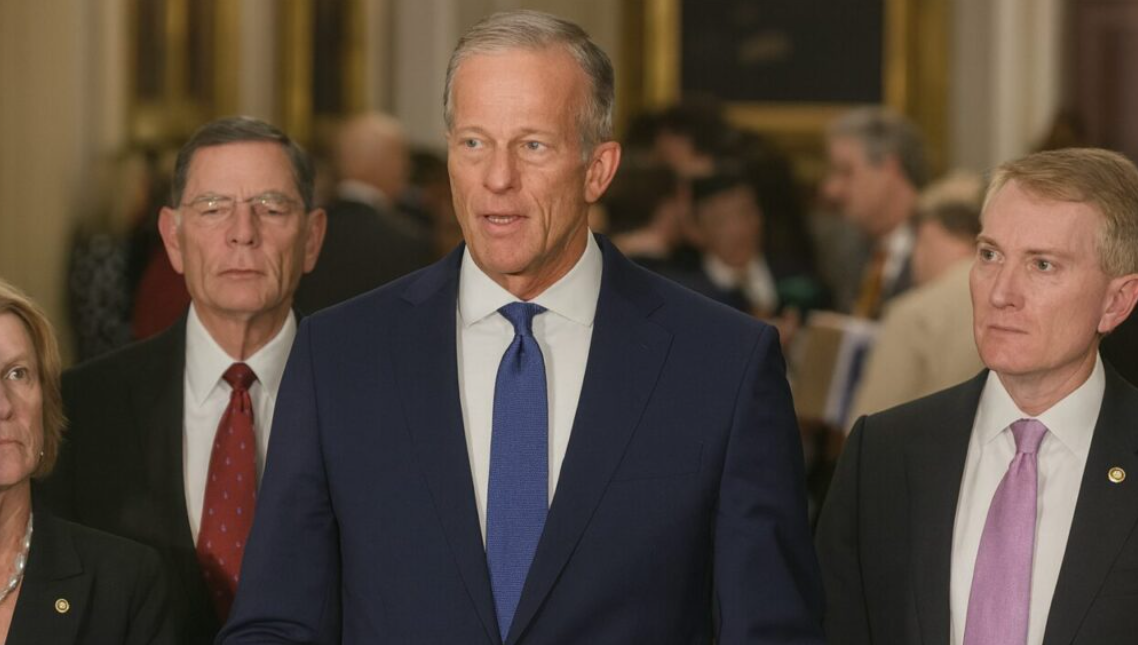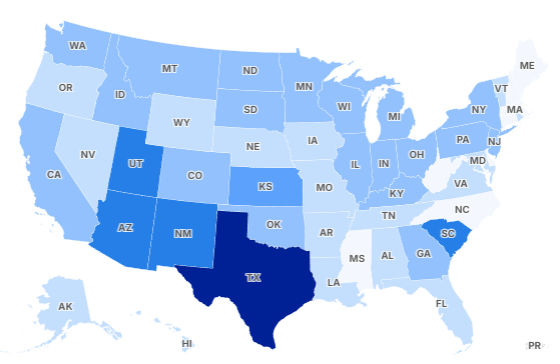Senate Hits Standstill as Thune Battles Obstruction, Deadlines, and GOP Dissent
WASHINGTON, D.C. — What was supposed to be a productive summer for Republicans is now slipping into paralysis.
With only two of twelve annual spending bills passed in the House—and zero cleared in the Senate—Majority Leader John Thune is confronting a full-blown legislative logjam. Time is short, patience is thinner, and the Trump administration’s fiscal and staffing priorities remain in limbo.
Democrats Stall Floor Business
At the core of the crisis: Senate Democrats are slowing everything down.
Though in the minority, they’ve refused to allow unanimous consent or quick voice votes on non-controversial matters, grinding the Senate floor to a halt. Dozens of President Trump’s civilian nominees are stuck. No budget bills have advanced.
“This is a historic level of obstruction,” Thune said on Monday. “We can’t govern if one party is dedicated to procedural sabotage.”
According to GOP aides, the tactic appears deliberate. Democrats are forcing time-consuming roll call votes even on previously routine actions. With floor time limited, this leaves little room to take up appropriations.
Trump Agenda Delayed, Again
The budget deadline is September 30. That’s when funding for federal agencies runs out. If the 12 appropriations bills aren’t passed by then, Congress will be forced into its fourth consecutive continuing resolution—a short-term funding patch that freezes current spending levels.
For the Trump administration, that would mean:
-
Delays in implementing new budget priorities
-
Continued restrictions on agency rulemaking
-
A stalled federal hiring pipeline
-
Political optics of a dysfunctional GOP-led Congress
GOP Strategy Falters After Fast Start
Senate Republicans started strong in early summer. The One Big Beautiful Bill Act, which consolidated over 100 executive priorities, passed amid celebration.
But then came the $9 billion rescissions bill—a GOP-led effort to claw back unused pandemic-era funds. That bill triggered internal disputes over priorities and derailed the momentum Republicans had hoped to carry into the full appropriations cycle.
By late July, the Senate had passed nothing.
Three Options, Few Easy Answers
Majority Leader Thune is now floating three paths forward:
1. The “Minibus” Package
Thune’s preferred option is bundling three funding bills—Agriculture-FDA, Commerce-Justice-Science, and Military Construction–VA—into a single legislative package. This would allow limited progress while giving both parties something to take home before recess.
But some in his own conference aren’t sold.
“We don’t want another omnibus-lite,” said one conservative staffer. “Transparency matters. So does discipline.”
2. Cancel August Recess
Another option? Stay in session.
Thune has warned colleagues that the Senate may need to work through the planned August recess to catch up. That would send a message to voters that Republicans are serious about governing—even in the face of Democrat obstruction.
Still, it’s a gamble. Many senators have events, fundraisers, and home-district obligations on their schedules. Pushing them to stay risks backlash.
3. Force the Issue with Democrats
The nuclear option would be using floor time exclusively for confirmations—making Democrats vote, one by one, on every pending nominee. That strategy, while slow, would shift public attention to the obstruction itself.
But it comes with risk. It would essentially shut down other legislative work and could deepen partisan acrimony ahead of fall.
Democrat Motives: Delay or Strategy?
Why are Democrats slowing the process?
Some say it’s political revenge—payback for GOP hardball during past years. Others believe Democrats are trying to delay key policy shifts, hoping that public frustration lands on Republicans.
“It’s not obstruction for its own sake,” one Democrat aide told The Dupree Report. “It’s a check on a reckless agenda.”
Still, with no counter-proposals and no budget progress of their own, the strategy risks appearing cynical—especially as federal workers and contractors watch funding deadlines approach.
Internal GOP Splits Add Pressure
Complicating matters: Republicans are not fully united.
Some fiscal hawks are demanding deeper cuts than what Thune’s initial proposals included. Others, especially appropriators from swing states, want to avoid another government funding showdown altogether.
That tension is slowing internal negotiations and giving Democrats more room to maneuver.
Will Trump Intervene?
Sources close to the White House say President Trump is “watching closely” but has not yet intervened. Privately, some aides believe he may lean on senators to cancel recess if no progress is made by August 10.
Others believe Trump could make the stalled confirmations a campaign issue—especially if key ambassadorial or DOJ roles remain unfilled.
Clock Is Ticking
With the recess set to begin in less than two weeks, the Senate has limited floor days to act. If no appropriations bills move soon, and if no nominees are confirmed, Republicans will enter September on the defensive.
That could hand Democrats a narrative: even with control, the GOP can’t govern.
Thune knows that risk.
“The American people expect results,” he said. “We’re going to deliver—one way or another.”
Whether that means cutting a deal, canceling vacation, or forcing Democrats into long days of roll call votes remains to be seen.

Emily Johnson is a critically acclaimed essayist and novelist known for her thought-provoking works centered on feminism, women’s rights, and modern relationships. Born and raised in Portland, Oregon, Emily grew up with a deep love of books, often spending her afternoons at her local library. She went on to study literature and gender studies at UCLA, where she became deeply involved in activism and began publishing essays in campus journals. Her debut essay collection, Voices Unbound, struck a chord with readers nationwide for its fearless exploration of gender dynamics, identity, and the challenges faced by women in contemporary society. Emily later transitioned into fiction, writing novels that balance compelling storytelling with social commentary. Her protagonists are often strong, multidimensional women navigating love, ambition, and the struggles of everyday life, making her a favorite among readers who crave authentic, relatable narratives. Critics praise her ability to merge personal intimacy with universal themes. Off the page, Emily is an advocate for women in publishing, leading workshops that encourage young female writers to embrace their voices. She lives in Seattle with her partner and two rescue cats, where she continues to write, teach, and inspire a new generation of storytellers.









